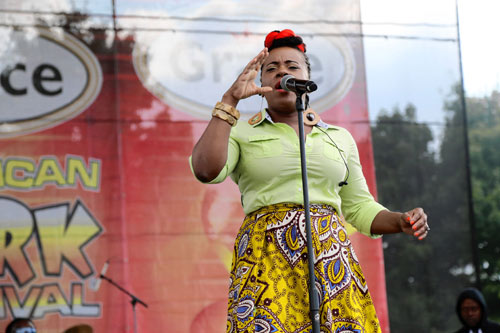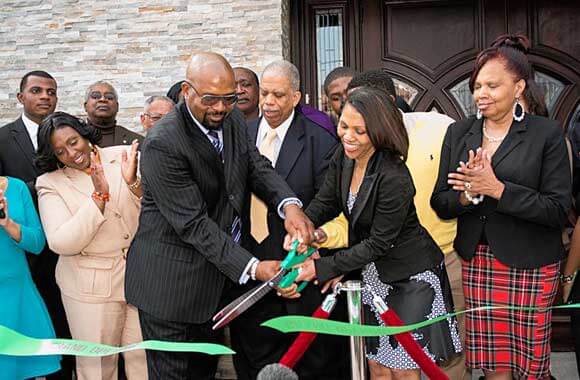For a very long time, Guyanese, West Indians, Latinos, Sikhs and other minorities in Richmond Hill, Queens, Brooklyn and elsewhere, have accused New York police of racism and abuse of their powers, including at a groundbreaking Town Hall meeting at the Nareesa Palace on Rockaway Boulevard in Richmond Hill. Indeed, Richmond Hill and Flatbush are mere microcosms of this greater institutional problem in minority communities all across America, where many continue to be murdered and discriminated against senselessly.
Years ago, the Stabroek News of Feb. 1, 2007, reported in an article by Dr. Vishnu Bisram, “Guyanese in Richmond Hill charge police with profiling, abuse.” He reported that, “Person after person came forward to relate experiences of racism and police abuse in an exchange with the Police Chief of Queens and the Captain of the 106th Police Precinct (Pct) which is responsible for most of the Richmond Hill Ozone area. Allegations were also levelled against the 102nd Pct but the bulk of the complaints were against officers of the 106th Pct.”
At that meeting, organized by Rotarians and concerned businessmen Joe Iaboni, Jack Rassbeharry, TV host Roy Ramsarran, Trevor Rupnarain, Colin Moore and myself, “the Guyanese victims complained about racial profiling accusing the police of capricious and arbitrary targeting of their community to meet ticketing quotas and to make unjustified arrests in order to obtain overtime pay, charging that the police tend to make arrests towards the end of their shift in order to earn overtime pay, and that there has been a de facto increase in arrests in the precinct of some 22% since 1995.”
Many speakers applauded the work of the police in bringing down crime, noting that the district had seen crime decrease by 73% in the 106th Pct and 77% in the 102 Pct, contending that the community is not against the police enforcing the law but the community should not be targeted.
They complained that “other ethnic communities are not targeted for aggressive enforcement of the law, and that police officers do not enforce double parking in White neighborhoods such as Howard Beach but they have zero tolerance in Richmond Hill, and complained that they would appreciate answers, explanations and solutions to our complaints and an end to profiling.”
The report further said, “One Guyanese taxi driver related how he triple parks every day on Cross Bay, an Italian neighborhood, and he never received a ticket. But on Liberty Avenue he gets tickets and is harassed for double parking even when sitting in his car. Mike Persaud, a teacher, who was subjected to an unjustified summons that was thrown out by a judge said, ‘What the police is doing to this community is tantamount to harassment. We must put an end to it.’”
There were also several complaints about motorists getting tickets for dropping off relatives at bus stops (when there is no where else to stop) or for double parking letting off passengers. In one case, the police issued a ticket to a motorist who was dropping off an 81-year-old at the bus stop. Another motorist was issued a summons for dropping off a pregnant woman at the bus stop. It was alleged that the police don’t issue summons for putting off passengers at bus stops in White neighborhoods. And in White neighborhoods, the police gently ask drivers who are double parked to move on rather than issue summons. But in Indian neighborhoods, they are issued a summons for $105.
The report continues, “Lawyer Albert Baldeo suggested that the police show more sensitivity when issuing summons. Drivers should not be issued summons for dropping off.” The police chief agreed with Baldeo and promised to re-examine the issue with his officers. Chief Tom Dale said officers should use commonsense and discretion when issuing tickets. Dale also requested speakers from the community to come forward and address officers about the diversity of the community. Baldeo also called on Chief Dale for better community policing. “There is a problem with the method the police use in going after residents in the community. They are arrogant. There is a cultural divide between the police and the community. Almost all of the officers are from outside the area, and living in Long Island they have no knowledge about the cultural background of the community.”
One victim, Faroukh, described how he was ridiculed and taunted by a police officer who arrested him without justifiable reason. Faroukh claimed he had just come from the Masjid after 10 pm during Ramadan and was parking his vehicle when the police came up to him and asked if he was drinking. “I told him I am fasting and he asked ‘What is fasting?’”
The Muslim period of Ramadan was all over the mainstream news. But that police officer did not know anything about Ramadan and fasting. Faroukh claimed: “He took me for a ride for three and a half hours and then took me to the precinct for booking. He said he was charging me for drug use. I am going to teach you Indians a lesson.” Faroukh said that the same officer did a similar thing to another Guyanese motorist in the evening, charging him for drug use. Both motorists had their charges thrown out by the court. But no action was taken against the abusive police officer who is free to continue harassing other Guyanese.
Guyanese also complained that the police would question them about their luxury cars such as BMWs, Rolls Royce, and Mercedes Benz. “If you drive a luxury car, they will stop and question you. The oft repeated complaint was the police would ask “Is this your car or how did you afford this car?”
One real estate owner charged, “They can’t believe we could afford such expensive cars. We work very hard and want to enjoy our earnings.” Chuck Mohan, a labor union leader, charged that “the police treat us as foreigners who don’t belong here. They think Guyanese are animals. The police should be held accountable.”
Chief Dale urged the community to file complaints against abusive police with the Community Civilian Review Board. But Guyanese say the CCRB pays lip service and almost never takes action against abusive police. Captain John Dorothy of the 106th Pct invited Guyanese to attend the precinct’s monthly meeting to voice their concerns and grievances and to make suggestions on improving police-community relations.
Both Chief Dale and Capt. Dorothy agreed there is need for interaction between the police and community. Dale also promised there will be more meetings for the community to voice their concerns and grievances. “We want to know what is going on in your neighborhood. Let us work together to improve relations and to make police work better.”
Other community leaders like Colin Moore, Latchman Budhai, Kris Gounden, Haji Zakir, Mike Persaud and many other residents vociferously highlighted the constant harassment experienced by police officers on Liberty and Flatbush Avenues, like getting tickets when parked safe distances from bus stops, being stopped and threatened for no reason, ordered out of one’s car because of “driving while brown,” profiled for driving a modern car, and for various other unlawful, biased related reasons. “There is a notorious Latino, mustached cop from the 106th Precinct, who ducks and waits like a cobra in an unmarked car, patrols Liberty Avenue and Rockaway Boulevard whole day, and just tickets people like a monster machine,” complained several residents. His name sounds like “Avocado.”
Guyanese immigrant Damon Mootoo, whose lost and found episode in New York made headlines then, was afraid to ask police for directions to his home, and nearly died of frost bite as a result. Moreover, immigrants are justifiably afraid that the police will turn them over to immigration authorities for deportation, despite the City’s sanctuary policies denouncing this type of action.
Have relations improved or deteriorated since then? Have law enforcement methods improved, or gotten worse? Now, it is time to take another look at this situation. Please email your suggestions, concerns and experiences to AlBal
If you wish to file a complaint regarding excessive force, abuse of authority, discourtesy or offensive language (FADO) against a member of the New York City Police Department (NYPD), you can do so online through the Civilian Complaints Review Board’s (CCRB) web site. The CCRB often conducts in-person interviews at its office, located at 100 Church St., in Manhattan. If need be, interviews are also conducted at locations in all the boroughs. The investigator will travel to you particularly in cases of hardship. Criminal complaints against non-NYPD personnel must be filed with the police department. Complaints against members of police departments other than the NYPD must be filed with the Internal Affairs department of the local police department.
Note: Albert Baldeo is a civil rights activist and community advocate. As president of the Baldeo Foundation and Liberty Justice Center, he has continued the fight for justice, equal rights, dignity and inclusion in the decision making process. He can be contacted at the Baldeo Foundation: (718) 529-2300.

























